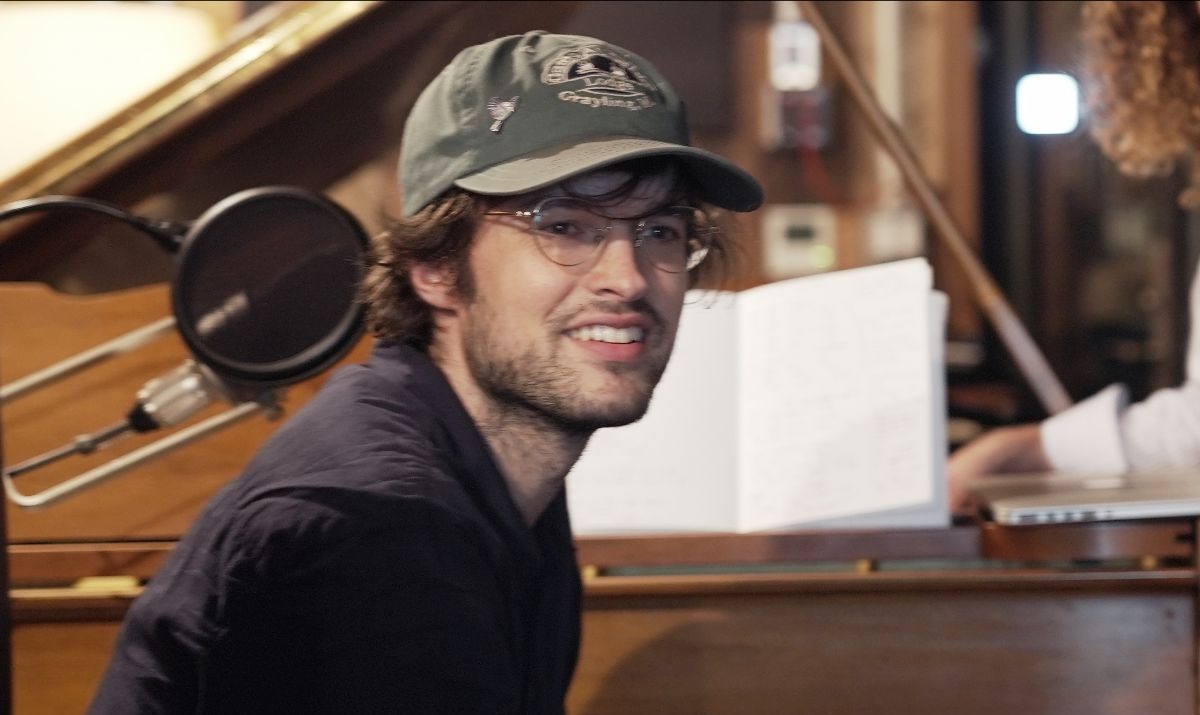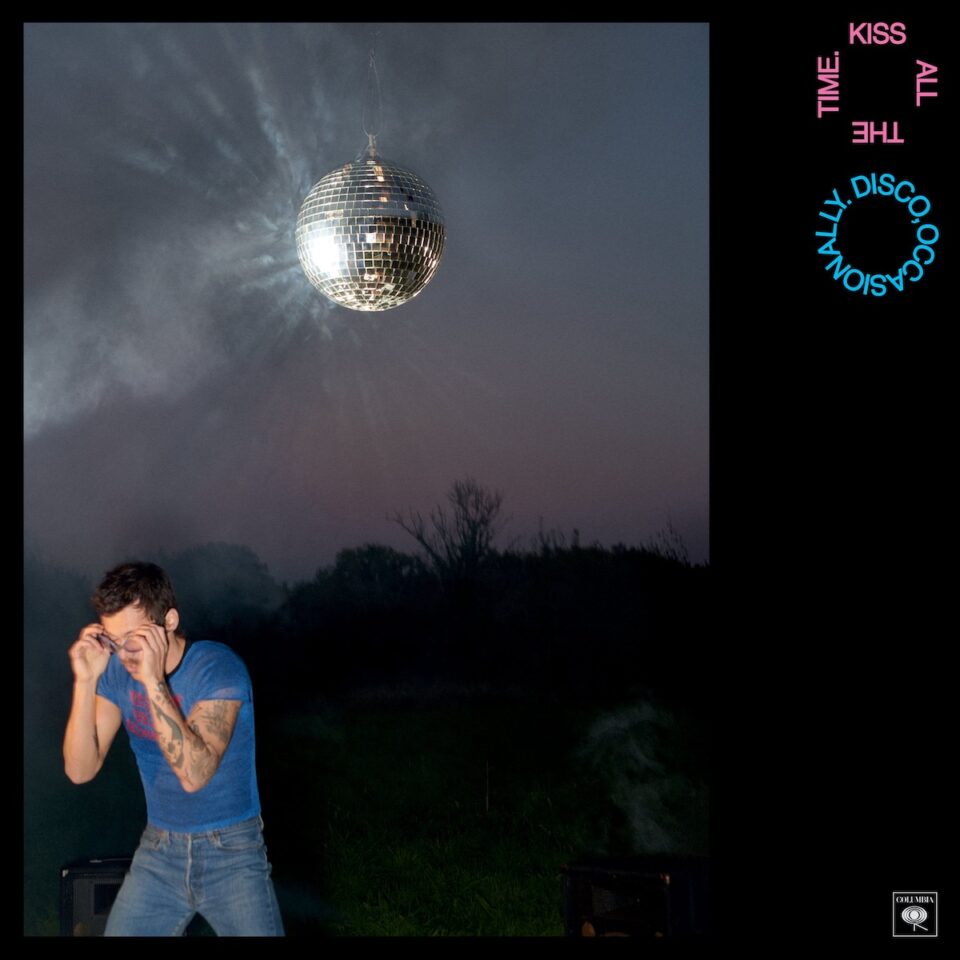You’d be forgiven for assuming Young Jesus was the name of a particularly cocky rapper who chose his moniker in the shadow of Jeezy’s influence (and naming conventions) in the mid-2000s, but in actuality it’s the moniker for the shapeshifting art-rock project John Rossiter founded around that time. Over the course of five albums, the project has had a revolving door of members helping to bring Rossiter’s heady lyrics and experimental compositions to life through the disparate and often convoluted languages of Midwest emo, post-punk, slowcore, prog, and alt-country before the inception of Shepherd Head, a new stripped-back solo record pairing Rossiter’s familiar existential, self-reflective, and theological themes with minimal, ambiance-heavy instrumentals.
Yet even these stripped-back compositions are so full of unique sounds and left turns that it never quite feels like a proper solo record (those guest verses from Tomberlin and Arswain don’t seem to help in that department either). While the lack of backing band in theory might leave room for Rossiter’s poetic lyrics to flourish, it feels harder than ever to focus on his falsetto—which ranges here from resembling Robin Pecknold to James Blake, depending on its accompaniment—as a whirlwind of fascinating sounds is constantly swirling around behind it.
With the record dropping today via Saddle Creek, Rossiter took the time to break down each track’s literary influence, citing authors ranging from bell hooks, to the Catholic theologian Meister Eckhart, to a personal friend whose poetry appears on the record. Stream the LP and read his breakdown below.
1. “Rose Eater” | All About Love by bell hooks
I was deep in a theory space—lots of niche terminology and academic language. I really wanted to learn the “truth” about the world and I thought because these books were hard to read, they held the “truth.” But it was always such a struggle reading those books, and very difficult to emotionally connect.
Then we read All About Love and I felt angry. I was angry because it was accessible, emotional, and honest. To me, I wanted knowledge to be a scarce resource that you had to work very hard to attain. But this book showed me that the best thinkers take inaccessible, complex ideas and make them accessible. This book really changed how I think about reading.
2. “Ocean” | Selections From His Essential Writings by Meister Eckhart
I feel like Meister Eckhart’s writings fit alongside Heraclitus, Tao te Ching, and Rilke. Prayers and sermons that are interested in the mystery of god, not the dogma. I like spiritual writing that creates a deep inner call. Eventually, through contemplation, it folds outward into the world. I used to want to be a monk, but I'm more invested in engaging with the world these days.
3. “Johno” | Ocean of Sound by David Toop
I got very excited about house music and jungle when I read this book. Really opened my ears to music that I hadn’t understood before. The writing is poetic, nonlinear. Stories weave in and out of the genuine love of music. There’s a sense of openness and adventure. Some of the sounds on “Johno” were greatly influenced by the music Toop writes about: Mr Fingers, Phuture, Psyche/BFC, Cybotron. Love reading books about music and listening to the tunes.
4. “Shepherd Head” | The White Stones by JH Prynne
To me, this is the best poetry book about feeling in love—to be in love with the world, to let it break your heart. It’s incredibly full, elegant, urgent. Thank you to Connie for showing me this!
5. “Gold Line Awe” | Jamie Renee Williams
Jamie wrote and read the poem that is featured on “Gold Line Awe.” Such a great writer. Order her zine emer.jent and read her writing along with a lot of great local writers and poets here in LA.
6. “Satsuma” | Belomor by Nicolas Rothwell
No one makes me feel the connection between melancholy and beauty like Nicolas Rothwell. It’s almost as if we live for pain so that it might paint the rest of our lives with different colors. His books speak to my soul. Wandering, questioning, a deep sense of how spirit is tied to place and how stories/art weave their way into the ground, the air become the ground, become the air. I always recommended these books to people when I worked at the bookstore and no one ever bought ’em.
7. “Believer” | Gnostic Gospels by Elaine Pagels
When I read this I started to think the Christianity I was raised with is kinda bullshit. The Gnostic Gospels represent alternative visions of the Bible. Some of them feel like questions, riddles, places for contemplation. It opened me up to my own interpretations of Christianity. I’m somewhere in the middle now, rather than complete acceptance or complete denial.
The thing about so many dominant ideas is that there do exist many alternatives. It takes a bit of digging because the world we’re in is deeply invested in the books and ideas that support it. So finding my own versions, my own spaces of belief and possibility, has been very important to me. It allows me to cling to the beautiful histories that they don’t often teach in school or church.
8. “A Lake” | Heavy by Kiese Laymon
Beautifully written. Very brave. I’m not sure what the future holds, but this book seemed to offer a way forward, an example.







